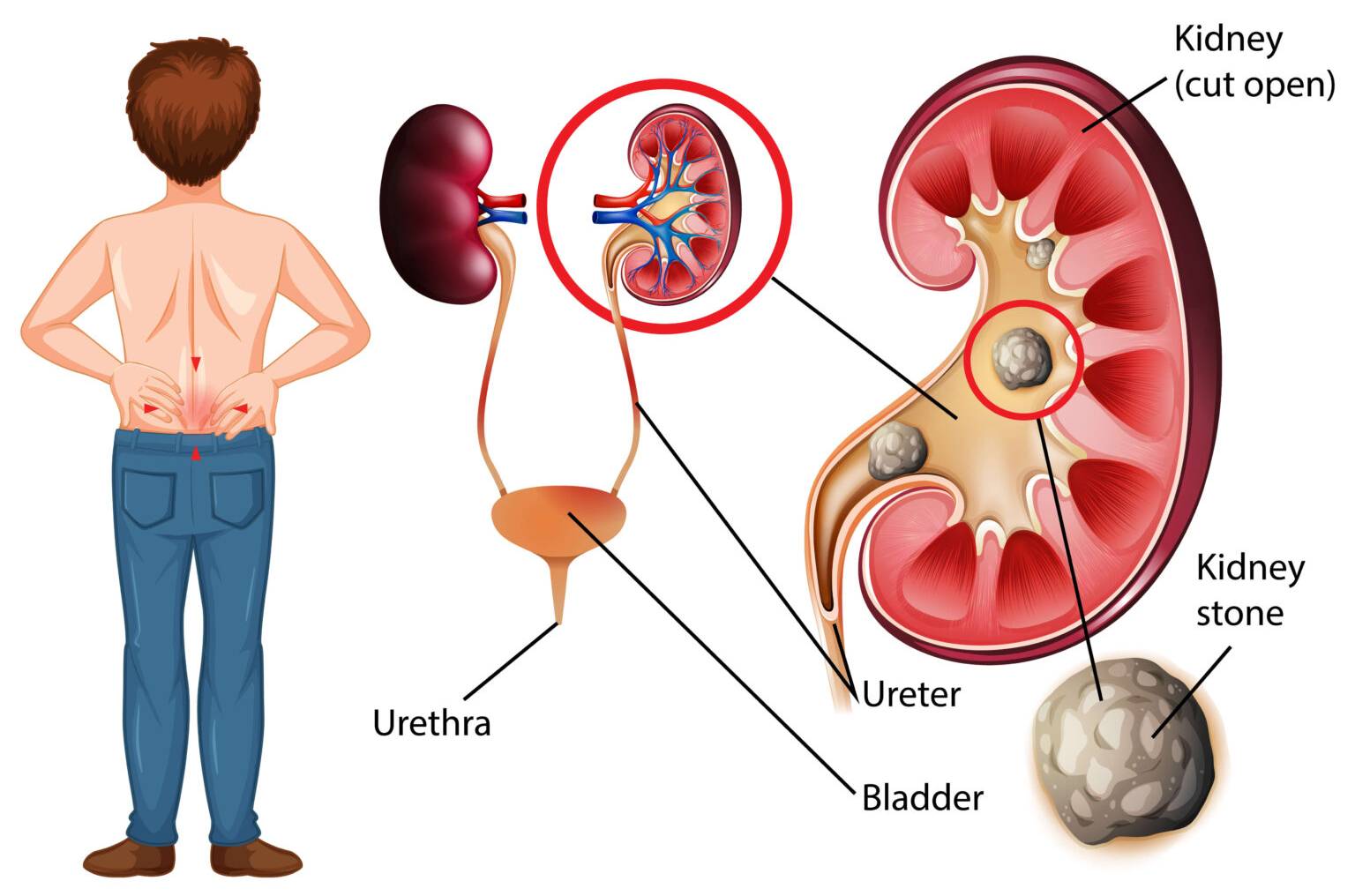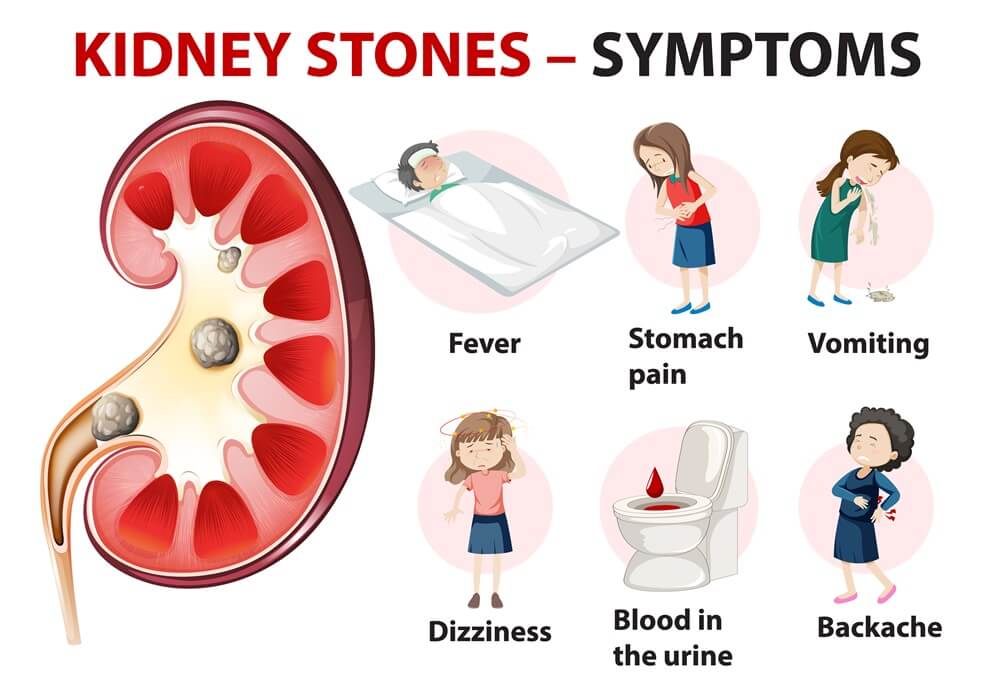Kidney stones are a common yet painful condition that affects millions of people worldwide. While small stones often pass on their own, larger stones may require surgical intervention. Understanding the process and what to expect can alleviate anxiety and help you prepare for the procedure. In this comprehensive guide, we will explore everything you need to know about kidney stone removal surgery, from identifying symptoms to recovery and prevention. Plusify is here to provide you with the best kidney stone removal surgery in Delhi, ensuring you receive top-quality care and expert advice throughout your journey.
Kidney Stones

What is a Kidney Stone?
A kidney stone is a hard, crystalline mineral material formed within the kidney or urinary tract. These stones can vary in size, from as small as a grain of sand to as large as a golf ball. Kidney stones form when there is a decrease in urine volume and/or an excess of stone-forming substances in the urine.
Types of Kidney Stones
There are several types of kidney stones, including:
- Calcium Stones: The most common type, often in the form of calcium oxalate.
- Struvite Stones: Usually form in response to an infection.
- Uric Acid Stones: Form when the urine is persistently acidic.
- Cystine Stones: Form in people with a hereditary disorder called cystinuria.
Understanding the type of kidney stone is crucial for determining the appropriate treatment, including kidney stone removal surgery in Delhi.
How to Know if You Have a Kidney Stone: Symptoms and Diagnosis
Symptoms
Kidney stones can cause severe pain, known as renal colic. The pain often starts suddenly when a stone moves in the urinary tract, blocking urine flow. Common symptoms include:
- Intense pain in the back or side
- Pain during urination
- Blood in the urine (hematuria)
- Nausea and vomiting
- Frequent urination
- Cloudy or foul-smelling urine
Diagnosis
Diagnosing kidney stones involves a combination of medical history, physical examination, and diagnostic tests. Your healthcare provider may use:
- Urine Tests: To check for substances that cause stones.
- Blood Tests: To identify high levels of calcium or uric acid.
- Imaging Tests: Such as X-rays, CT scans, or ultrasounds to visualize the stones.
- Analysis of Passed Stones: To determine their type.
Timely diagnosis is essential for planning the appropriate treatment, including the best kidney stone removal surgery treatment in Delhi.
Causes of Kidney Stones: Understanding the Risk Factors
Risk Factors
Several factors can increase the risk of developing kidney stones:
- Dehydration: Insufficient fluid intake can concentrate the urine, leading to stone formation.
- Diet: High intake of protein, sodium, and sugar can increase the risk.
- Obesity: Higher body weight is associated with an increased risk.
- Medical Conditions: Conditions like hyperparathyroidism and recurrent urinary tract infections.
- Genetics: Family history of kidney stones.
Understanding these risk factors can help in taking preventive measures and seeking timely medical intervention from the best kidney stone removal hospital in Delhi.
When is Kidney Stone Removal Surgery Necessary?
Indications for Surgery
Surgery may be necessary if:
- The stone is too large to pass on its own.
- The stone causes ongoing pain.
- There is a blockage in the urinary tract.
- The stone leads to recurrent urinary tract infections.
- There is kidney damage due to the stone.
Consulting with the best kidney stone removal surgeon in Delhi can help determine the necessity of surgery based on individual cases.
Types of Kidney Stone Removal Surgery: Which Option is Right for You?
Surgical Options
There are several surgical options available, depending on the size, type, and location of the kidney stone:
- Extracorporeal Shock Wave Lithotripsy (ESWL): Uses shock waves to break the stone into smaller pieces that can be passed in the urine.
- Ureteroscopy: Involves inserting a thin scope into the urethra and bladder to remove the stone.
- Percutaneous Nephrolithotomy (PCNL): A minimally invasive procedure where a small incision is made in the back to remove the stone.
- Open Surgery: Rarely used, involves a larger incision to remove the stone directly.
Discussing these options with your healthcare provider will help determine the most suitable kidney stone removal surgery in Delhi for your specific condition.
Preparing for Kidney Stone Removal Surgery: Preoperative Guidelines
Preoperative Steps
Preparation for kidney stone removal surgery involves several steps to ensure the procedure goes smoothly:
- Medical Evaluation: A thorough assessment including blood tests, urine tests, and imaging.
- Medications: Discuss any current medications with your doctor, as some may need to be stopped.
- Fasting: Follow the instructions regarding eating and drinking before the surgery.
- Arrangements for Post-Surgery Care: Ensure you have someone to help you after the procedure.
Following these guidelines will help minimize risks and enhance recovery after kidney stone removal surgery in Delhi.
What to Expect During Kidney Stone Removal Surgery: Step-by-Step Procedure
During the Surgery
The exact steps will depend on the type of surgery. Here is a general overview:
- Anesthesia: General or spinal anesthesia is administered.
- Accessing the Stone: Instruments are inserted through the urinary tract or a small incision in the back depending on the surgery type.
- Stone Removal or Fragmentation: The stone is removed directly or broken into smaller pieces.
- Stent Placement: In some cases, a stent may be placed in the ureter to facilitate urine flow.
Your surgeon will provide specific details based on the chosen procedure for kidney stone removal surgery in Delhi.
Recovery After Kidney Stone Removal Surgery: Postoperative Care and Tips
Postoperative Care
Recovery varies depending on the type of surgery but generally includes:
- Pain Management: Medications to manage pain and discomfort.
- Hydration: Drinking plenty of fluids to flush out any remaining stone fragments.
- Activity Restrictions: Limiting physical activities to avoid strain.
- Follow-up Appointments: Regular check-ups to monitor recovery and ensure no complications.
These steps are crucial for a smooth recovery after undergoing kidney stone removal surgery treatment in Delhi.
Potential Risks and Complications of Kidney Stone Removal Surgery
Risks and Complications
While kidney stone removal surgery is generally safe, it carries some risks, including:
- Infection: Post-surgical infections may occur.
- Bleeding: Both during and after the procedure.
- Damage to Surrounding Organs: Although rare, there is a risk of injury to nearby organs.
- Stone Recurrence: Stones may form again if preventive measures are not followed.
Discussing these risks with the best kidney stone removal surgeon in Delhi will help you understand and mitigate them.
Long-term Outcomes and Preventive Measures After Kidney Stone Removal Surgery
Long-term Outcomes
Most patients experience significant relief from symptoms and can return to normal activities after recovery. However, long-term outcomes depend on several factors, including adherence to preventive measures.
Preventive Measures
To prevent recurrence, consider the following:
- Hydration: Drink plenty of water to dilute the urine.
- Dietary Changes: Reduce intake of salt, sugar, and animal protein.
- Medications: Certain medications can help prevent stone formation.
- Regular Check-ups: Regular monitoring to catch any new stones early.
Following these measures can help maintain kidney health and avoid the need for repeated kidney stone removal surgery in Delhi.
Frequently Asked Questions (FAQs)
Q: What are the symptoms that indicate I might need kidney stone removal surgery in Delhi?
A: Kidney stone symptoms include severe back or side pain, blood in urine, nausea, and frequent urination. If these symptoms persist, especially with large stones, consult Plusify for a thorough diagnosis and potential surgery.
Q: What are the different types of kidney stone removal surgery available at Plusify in Delhi?
A: Plusify offers several kidney stone removal surgeries in Delhi, including Extracorporeal Shock Wave Lithotripsy (ESWL), Ureteroscopy, Percutaneous Nephrolithotomy (PCNL), and open surgery. Each type is chosen based on the size and location of the stone.
Q: How can I prepare for kidney stone removal surgery at Plusify in Delhi?
A: Preparation involves a medical evaluation, stopping certain medications, fasting before surgery, and arranging post-surgery care. Plusify provides detailed preoperative guidelines to ensure a smooth procedure.
Q: What is the recovery process like after kidney stone removal surgery at Plusify in Delhi?
A: Recovery includes pain management, hydration, activity restrictions, and follow-up appointments. Plusify offers comprehensive postoperative care to ensure a quick and smooth recovery.
Q: How much does kidney stone removal surgery cost in Delhi at Plusify?
A: The cost of kidney stone removal surgery in Delhi varies based on the type of surgery and individual patient needs. Contact Plusify for a detailed consultation and personalized cost estimate.
Conclusion
At Plusify, we provide comprehensive solutions for kidney stone removal surgery in Delhi, utilizing the latest advancements to ensure the best outcomes for our patients. Understanding the different types of surgeries, along with proper preoperative and postoperative care, is vital for a successful recovery. By adhering to preventive measures, you can significantly reduce the risk of recurrence and maintain optimal kidney health.
If you or a loved one is experiencing symptoms of kidney stones, don’t wait. Contact Plusify today to consult with the best kidney stone removal surgeon in Delhi and learn more about our top-rated services. Let us help you take the first step towards a pain-free and healthier future.


